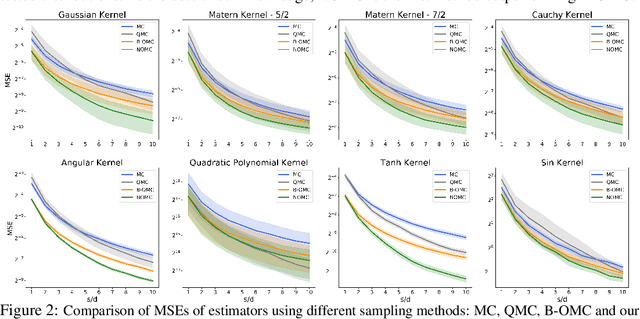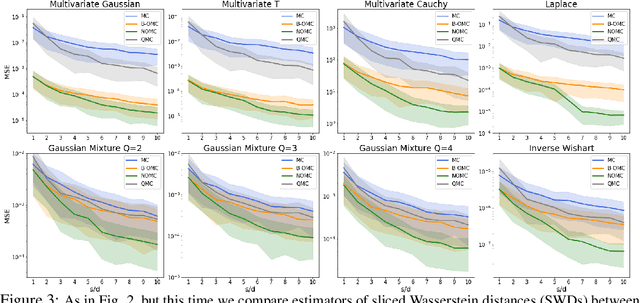Demystifying Orthogonal Monte Carlo and Beyond
Paper and Code
May 27, 2020



Orthogonal Monte Carlo (OMC) is a very effective sampling algorithm imposing structural geometric conditions (orthogonality) on samples for variance reduction. Due to its simplicity and superior performance as compared to its Quasi Monte Carlo counterparts, OMC is used in a wide spectrum of challenging machine learning applications ranging from scalable kernel methods to predictive recurrent neural networks, generative models and reinforcement learning. However theoretical understanding of the method remains very limited. In this paper we shed new light on the theoretical principles behind OMC, applying theory of negatively dependent random variables to obtain several new concentration results. We also propose a novel extensions of the method leveraging number theory techniques and particle algorithms, called Near-Orthogonal Monte Carlo (NOMC). We show that NOMC is the first algorithm consistently outperforming OMC in applications ranging from kernel methods to approximating distances in probabilistic metric spaces.
 Add to Chrome
Add to Chrome Add to Firefox
Add to Firefox Add to Edge
Add to Edge